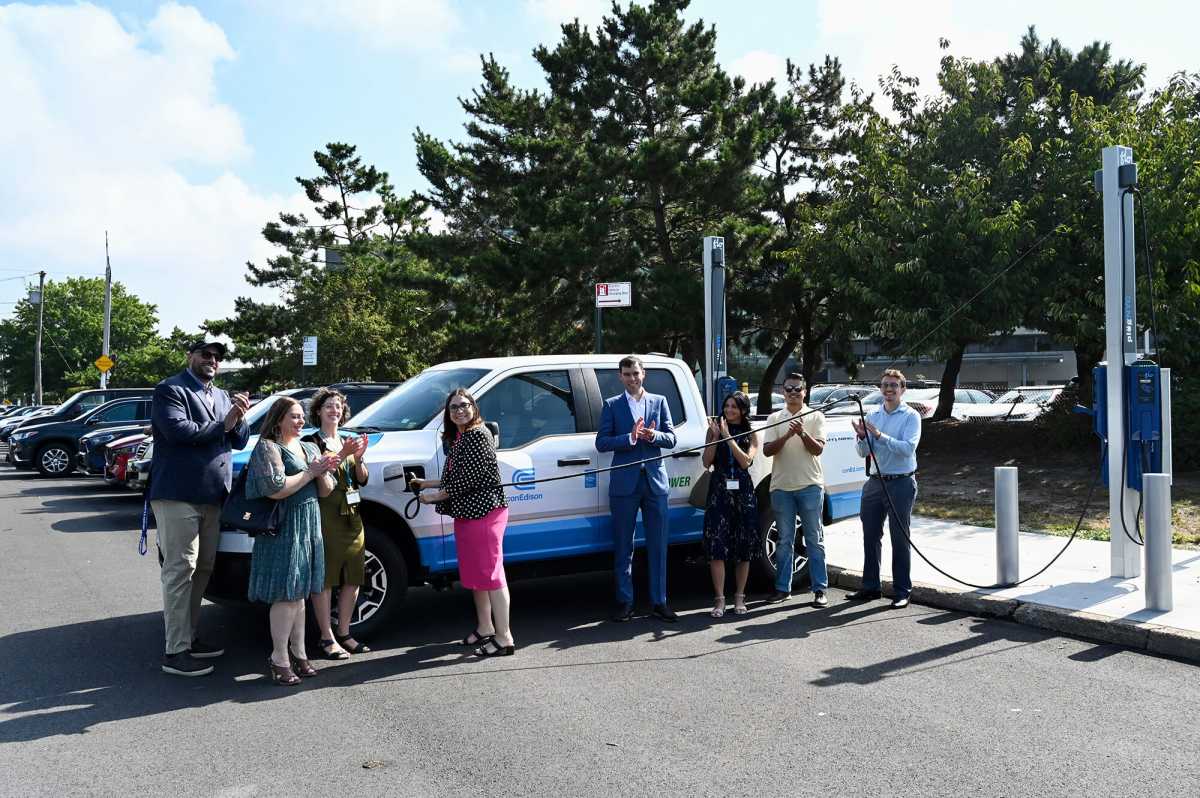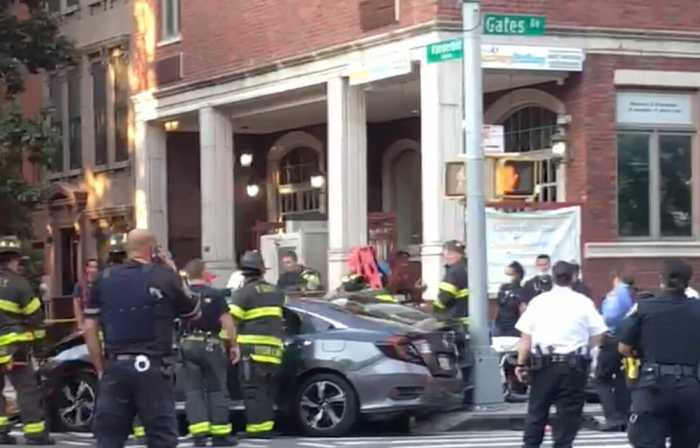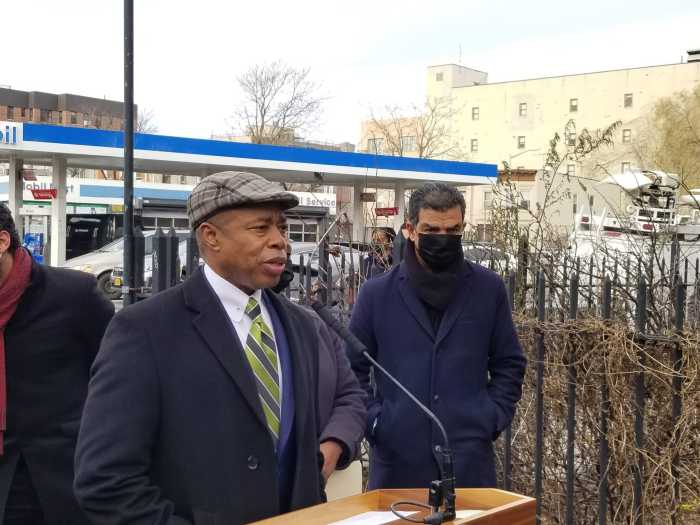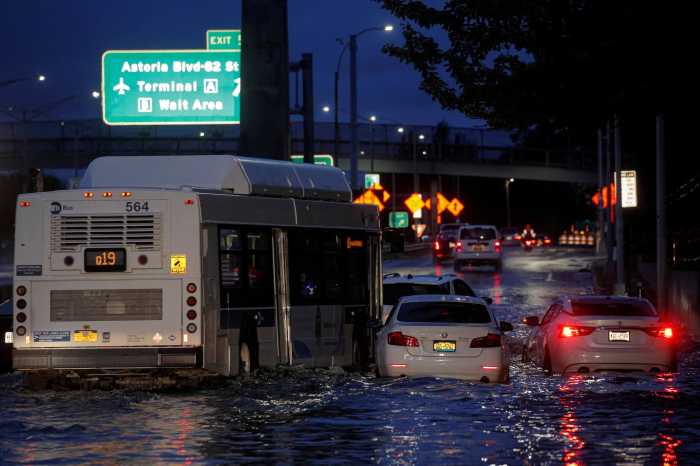For those driving electric vehicles, Con Edison, in partnership with the New York City Department of Transportation (DOT) and FLO, officially completed the installation of 100 Level 2 public electric vehicle charging ports across the city.
The installation of the charging ports comes as a part of Con Edison’s curbside charging pilot program, which is designed to increase the adoption of electric vehicles and help reduce the impact the transportation sector has on the environment. The 100th charging location recently opened for use on Staten Island.
“From Staten Island to the Bronx and every borough in between, curbside charging makes it possible for New Yorkers without access to private charging ports to consider an EV for their next car,” said Vicki Kuo, senior vice president, Customer Energy Solutions for Con Edison. “We’re committed to making it easier and more convenient for customers to switch from gas-powered vehicles, reduce their carbon footprint, and help New York achieve its clean energy goals.”
In an effort to better serve New Yorkers, Con Edison, DOT and FLO are continuing to assess the performance of the charging stations. Data collected found that curbside charging sites are being used at more than twice the anticipated rates — though the target use across all sites for year one of the project was 8 percent, in July, the average utilization rate across all sites was 25 percent. Awareness of curbside electric vehicle chargers is increasing, with 20 percent of respondents indicating that they had seen EV chargers on the street in public parking places, and FLO has been able to provide uptime of more than 99 percent in New York City by actively monitoring and maintaining every unit in the network.
Since the introduction of the curbside chargers last summer, the chargers have delivered 550,000 kilowatt-hours of electricity, which is enough for 1.7 million miles of travel in an electric vehicle. The chargers have eliminated the consumption of more than 67,000 gallons of gas and avoided more than 675 tons of CO2 emissions compared to gas-powered vehicles. Transportation currently accounts for approximately 30 percent of New York City’s greenhouse gas emissions, with one of the biggest culprits being passenger cars.
The charger port locations were selected based on input from local elected officials and community stakeholders, geographic diversity, and projected demand for charging. There are currently 32,000 electric vehicles registered in New York City and Westchester County, and Con Edison is seeing a vibrant electric vehicle market in New York and aims to install approximately 19,000 chargers by 2025.
“Electric vehicle adoption is an important piece in this administration’s efforts to reduce transportation emissions and protect the environment for our future generations,” said NYC DOT Commissioner Ydanis Rodriguez. “We’re proud to see this pilot expand to all five boroughs and thank our partners FLO and Con Edison in helping accelerate EV adoption citywide.”
Customers who charge up at the curbside ports can also benefit from other Con Edison programs, including SmartCharge New York, which rewards drivers for charging their vehicles between midnight and 8 a.m., when the demand for electricity is low. There are more than 6,000 drivers currently enrolled SmartCharge and as a result, they get access to a web portal that provides information about their driving and charging habits. Taxi and rideshare companies are also taking advantage of SmartCharge, and Con Edison believes that electric vehicles will play a huge role in a low-carbon future.
“New Yorkers are setting an example for cities across the country in their commitment to electrify their city,” said Louis Tremblay, president and CEO of FLO. “FLO is proud to be a partner in the transition to a cleaner future here in New York City by providing a reliable curbside charging solution to the city’s residents. We know reliability is a crucial driver of EV adoption and we are proud to have been able to provide an unprecedented uptime of more than 99% in New York City by actively monitoring and maintaining every unit in the network. We look forward to the continued expansion of our charging network here in New York City and across the United States.”
Each FLO charging unit is equipped with a standard connector compatible with most electric vehicles, has a retractable cord management system, and a design that is intended for public deployment. Charging will cost $2.50 per hour from 6 a.m. to 9 p.m. and $1 per hour overnight.




































